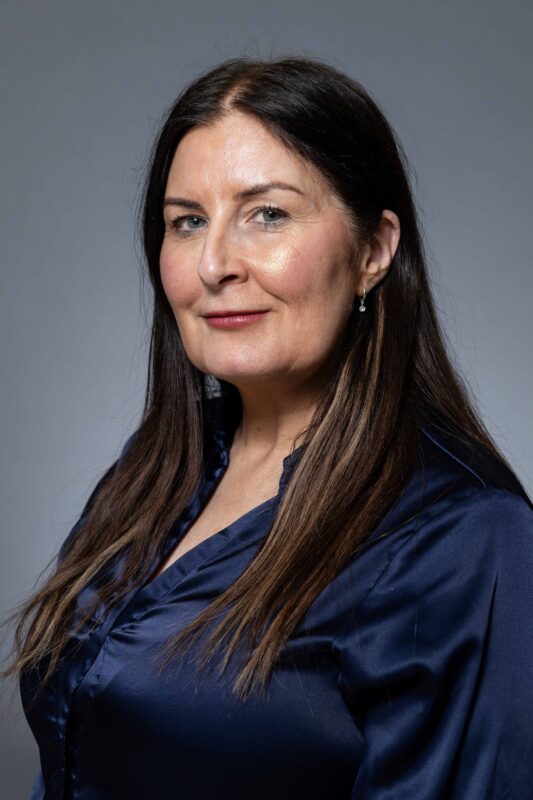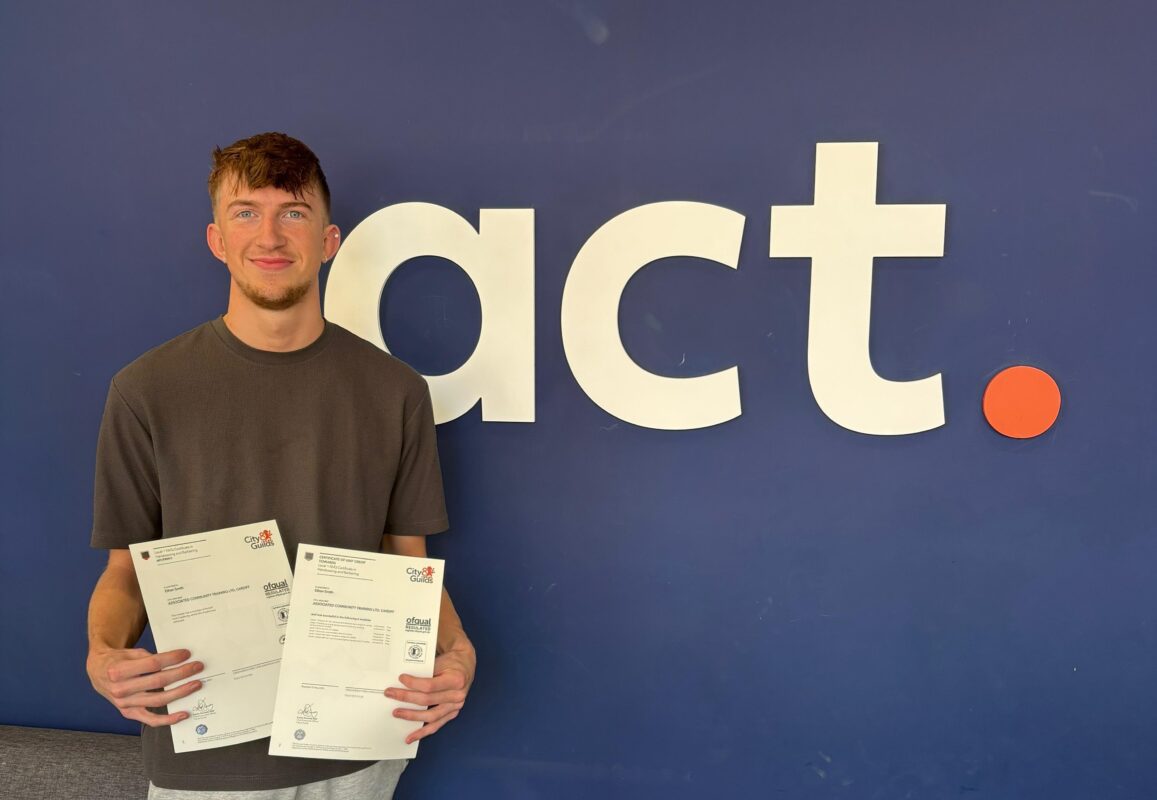A Step Baccward: EBacc no longer fit for purpose

New report shows EBacc no longer serves any useful purpose
Ever since its retrospective introduction in 2010, the English Baccalaureate (EBacc) has generated considerable debate.
Despite its confusing name, the EBacc is a ‘performance measure’ for schools that records the percentage of pupils who enter and pass their GCSEs in all the following subjects:
- English language and English literature;
- Mathematics;
- Either history or geography;
- A language (modern or ancient); and
- At least two of the three single sciences (biology, chemistry, computer science and physics) or ‘Combined Science’
Supporters of the EBacc claim that it promotes the study of a broad range of GCSE subjects and that it is needed to prevent schools offering less challenging subjects to their pupils, particularly those from disadvantaged backgrounds. Improving the academic prospects of poorer pupils would, in turn, support greater social mobility.
Meanwhile, the EBacc’s detractors claim that it has harmed subjects that are not included in the EBacc, leading to a narrow curriculum in many schools as well as the demise of important subjects.
This new report analyses what has happened since the EBacc first appeared in terms of GCSE subject entries and outcomes as well as the extent to which any observed changes can be reasonably attributed to the EBacc itself.
Commenting on the report A Step Baccward, Kevin Courtney, Joint General Secretary of the National Education Union said;
“The NEU welcomes this report. Our members have been saying this for many years – the EBacc is narrowing the curriculum and should be scrapped.
“The EBacc is a flawed policy. Alongside the funding cuts schools and colleges have faced in recent years, it has caused the destruction of creative and technical subjects as well as PE, RE and Social Studies.
“The EBacc simply isn’t necessary. Enforcing a strait jacket of choices does not help students achieve their potential – one-size does not fit all. Education professionals are best placed to help students consider what courses are best for them and we should seek to create a system which is flexible enough to enable that.
“The evidence against the EBacc is mounting and, as this report recommends, Government must leave it behind to ensure that future students are saved from the impoverished curriculum experienced by those in recent years.”
GCSE subject entries since 2010
The subjects included within the EBacc have mostly thrived over the past decade. The single sciences (+38%) and both history (+23%) and geography (+42%) have seen substantial increases in GCSE entries. Languages have fared less well as both French (-27%) and German (-36%) have fewer entries than in 2010, although Spanish has performed much better (+51%) – albeit from a lower base. Teacher numbers have changed commensurately, with many EBacc subjects experiencing a growth in staffing levels since 2010.
The contrast between EBacc subjects and non-EBacc subjects could hardly be greater. After initially seeing a slight boost in GCSE entries post-2010 due to changes in the qualifications included within school performance tables, Art & Design (-6%), Dance (-46%), Drama (-29%), Media/Film/TV Studies (-35%), Music (-24%) and the six Design & Technology subjects (-65%) have all seen a decline in entries and are now falling year-on-year. The number of teachers for these subjects has also dropped, with many non-EBacc subjects experiencing a fall of over 1,000 teachers (the number of D&T teachers has fallen by over 3,500).
Other non-EBacc subjects such as Religious Studies, PE and Social Studies also experienced a small increase in GCSE entries because of changes to performance tables after the EBacc was introduced, but their entries are now falling sharply in many cases and so are the number of qualified teachers for these subjects.
EBacc entry and achievement rates
After a rise in pupils being entered for all the EBacc subjects from 2012 to 2013, this quickly stabilised at around 35-40 per cent and shows no signs of improvement.
Less than a quarter of GCSE pupils ‘pass’ all their EBacc subjects and this too shows no signs of improving. What’s more, if the benchmark for passing GCSEs is set at grade 5 instead of grade 4 on the 9-1 scale, the percentage of pupils passing the EBacc falls to just 16.7 per cent.
The impact of the EBacc on pupils, teachers and school leaders
Numerous studies have raised concerns about how the EBacc has changed the behaviour of teachers and school leaders. A study by Ipsos Mori commissioned by the Department for Education (DfE) found that many schools had changed their curriculum offer to accommodate more EBacc subjects and sometimes redeployed staff to deliver this, but this often resulted in schools withdrawing or restricting other subjects (particularly creative arts courses). Moreover, the EBacc did not typically result in pupils making different decisions about which GCSE subjects to choose.
The same study also found considerable confusion about what the EBacc was trying to achieve, particularly around whether it would help pupils with university entry. This led to schools giving pupils different messages about the EBacc’s importance. Most parents felt that they already had enough information about a school’s performance without needing the EBacc, and some expressed concerns about its narrow academic focus and its impact on non-EBacc subjects. In addition, almost all schools were experiencing significant problems with recruiting enough teachers of EBacc subjects, especially science and mathematics – a theme that continues to this day.
Two studies by the Sutton Trust in recent years have shown that the EBacc does not appear to have been any great benefit to disadvantaged pupils. The government’s EBacc targets (75% of pupils studying EBacc subjects by 2022; 90% of pupils by 2025) may also have resulted in some schools entering large numbers of pupils for EBacc subjects even when they were not likely to pass the examinations and may not have been interested in the subjects to begin with. Far from improving social mobility, this could have the opposite effect if it reduces poorer pupils’ GCSE performance. In addition, a recent study commissioned by the DfE showed that schools which have seen notable rises in EBacc entry rates since 2010 appear to have achieved this by significantly downgrading non-EBacc subjects to the point where they were sometimes being taught after school or as optional activities.
Research has suggested that other factors such as the financial pressures on schools may have contributed to the decline of arts provision since 2010 in addition to the EBacc. For example, surveys of headteachers have found that the vast majority of schools have cut back on the lesson time and resources allocated to arts subjects. In some cases, funding has been redistributed towards EBacc subjects at the expense of non-EBacc subjects, which has affected both curriculum time and extra-curricular activities.
Other developments have raised further questions about the value of the EBacc. The introduction of ‘Progress 8’, another headline performance measure for schools, in 2016 appears to have driven more pupils towards EBacc subjects even though the same pupils were not entered for (or achieved) the full complement of EBacc subjects. This strongly suggests that the EBacc has now been superseded as the main driver of decisions within schools. Furthermore, the decision by the Russell Group of universities to withdraw their list of ‘facilitating subjects’ for university entry – which has always been one of the key justifications used by the DfE to support the list of subjects included within the EBacc – is a significant setback for the credibility of the EBacc as a performance measure.
Recommendations
RECOMMENDATION 1: The two EBacc performance measures for schools – the percentage of pupils entering the English Baccalaureate and the English Baccalaureate Average Point Score (EBacc APS) – should be withdrawn with immediate effect. The associated targets of 75 per cent of pupils entering the EBacc subjects by 2022, and 90 per cent by 2025, should also be dropped.
The introduction of the EBacc appeared to nudge pupils and schools towards the subjects it includes, but this effect faded rapidly after 2012 and the proportion of pupils entering and achieving the EBacc has subsequently flatlined. Furthermore, it is possible that some, if not all, of the changes seen in entries for EBacc subjects in the years immediately after its introduction were actually driven by the removal of ‘low-quality’ qualifications from performance tables following the review by Professor Alison Wolf in 2011.
The lack of clarity around the purpose of the EBacc is still prevalent, and research has shown that parents are largely uninterested in what the EBacc statistics say about a school. The absence of a solid evidence-based argument for the group of subjects included in the EBacc raises further doubts about its value to pupils and the wider school system. In addition, what is now being recorded across almost every non-EBacc subject regarding GCSE entries and teacher numbers is concerning. On every main measure analysed in this report, creative arts and other non-EBacc subjects have been in decline, and this decline has often accelerated over the past few years. In any case, since 2016 it has been Progress 8 that appears to have encouraged more pupils to choose EBacc subjects.
In light of these findings as a whole, this report concludes that the two separate EBacc performance measures no longer serve any useful purpose and should therefore be withdrawn along with their associated targets. Removing the EBacc performance measures will not automatically undo the fall in the provision of non-EBacc subjects witnessed since 2010. Nevertheless, it would mean that a more productive conversation about the impact of Progress 8 could then take place (see Recommendation 2).
RECOMMENDATION 2: Following the removal of the EBacc performance measures, the Department for Education should refer instead to ‘core’ and ‘additional’ subjects in the context of GCSEs.
The removal of the EBacc will require the DfE to change their use of language when describing the different groups of GCSE subjects. At present, Progress 8 includes a double-weighted element (‘bucket’) for English and mathematics (provided that a pupil has taken GCSEs in both English literature and English language) as well as a bucket that can include the three highest point scores from any EBacc subjects. It is recommended that the DfE cease referring to science, history, geography and languages as ‘EBacc subjects’ and instead simply label them as ‘core’ subjects along with English and mathematics. ‘Additional’ subjects would then be counted towards the third and final bucket for calculating Progress 8. The aim of this recommendation is to defuse some of the tension creating by separating ‘EBacc’ (i.e. valued) and non-EBacc (i.e. not valued) subjects.
RECOMMENDATION 3: Consideration should be given to reforming the ‘Progress 8’ performance measure if policymakers want to put a greater emphasis on ‘additional’ subjects including arts provision.
If this government or a future government wishes to address the recent decline in arts provision, removing the EBacc is only likely to be part of the answer. Progress 8 will still encourage schools to prioritise the ‘core’ subjects. When this is combined with the effect of their weakening financial position, schools will continue to be faced with difficult choices around the provision of creative arts and other ‘additional’ subjects.
Should schools receive an increase in funding, either through the government’s planned ‘spending review’ in late 2019 or through another mechanism, this might help to deal with some of the difficulties facing school leaders when seeking to promote arts subjects in the curriculum. Even so, if a better funding settlement is not deemed sufficient to improve the prospects of ‘additional’ subjects, there are three options available to policymakers in terms of using Progress 8 to bring about further change:
- Combine the second and third bucket in Progress 8 to remove any distinction between ‘core’ (EBacc) and ‘additional’ (non-EBacc) subjects, allowing pupils to choose any six subjects alongside English and maths which then feed into a school’s Progress 8 score;
- Combine the second and third bucket in Progress 8 but increase the weighting of subjects currently in bucket 2 (‘Core’ / EBacc subjects) to incentivise schools to keep entering pupils for ‘core’ subjects where appropriate but still allow them to enter pupils for up to six ‘additional’ subjects if it is in the pupils’ best interests;
- Reduce bucket 2 (‘Core’ / EBacc subjects) from three to two subjects to give schools more space in the curriculum for ‘additional’ subjects, which should in turn reduce the incentive on schools to put more resources into providing EBacc subjects.
Each of these options have merit and this report does not express a preference for any of them, as ultimately the priorities of policymakers will determine which of these options are suitable for their wider agenda on subject choices at GCSE and the school curriculum.
Conclusion
Given that the ‘creative industries’ feature prominently in the government’s ‘Industrial Strategy’ for boosting the UK economy in the coming years, it seems strange that for the last nine years the government has pursued a method of holding schools to account that works in precisely the opposite direction. This report does not seek to detract from the importance of offering all pupils a broad and balanced curriculum. It is plainly apparent that in the years running up to the 2010 General Election, some subjects – particularly humanities and languages – had seen their popularity fall for various reasons. There is nothing inherently wrong with a new government encouraging schools to enter pupils for subjects that had suffered a decline in the preceding years and there is no doubt that the EBacc was a well-intentioned initiative. However, this logic has now been turned on its head because since the EBacc was introduced, science, history and geography have thrived while many other subjects – most visibly in the creative arts – have seen their numbers dwindle.
It would be wrong to suggest that removing the EBacc will lead to an immediate upsurge in the number of pupils taking GCSEs in arts subjects. That said, the advent of Progress 8 in 2016 has provided the government with a perfectly sufficient tool for promoting their view of the subjects that schools should be prioritising – effectively negating the need for the EBacc. Financial pressures are continuing to hamper the ability of school leaders to provide a broad and balanced curriculum, which remains a cause for concern. Given that so many subjects sitting outside of the EBacc have been struggling for so long, it is now time for a new approach to school performance measures that goes beyond fighting the battles of 2010 and instead focuses on what needs to happen in 2019 and beyond. For this reason, the continued use and prominence of the EBacc is therefore, as the title of this report says, a step ‘baccward’.











Responses